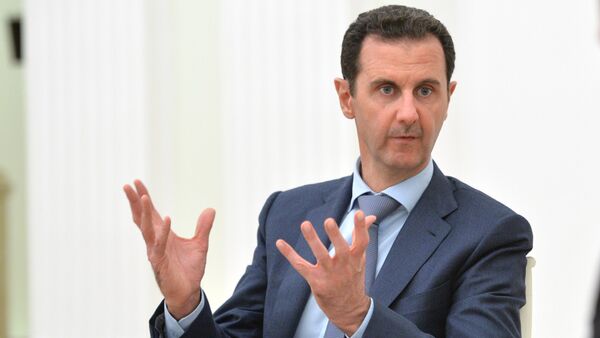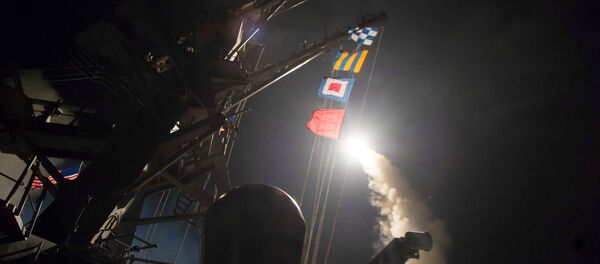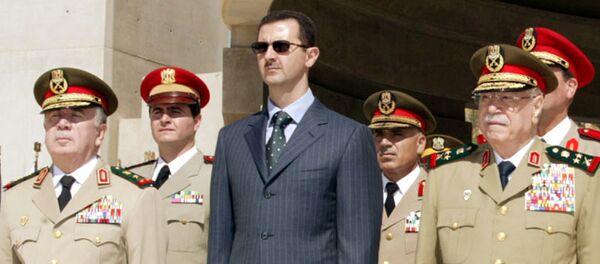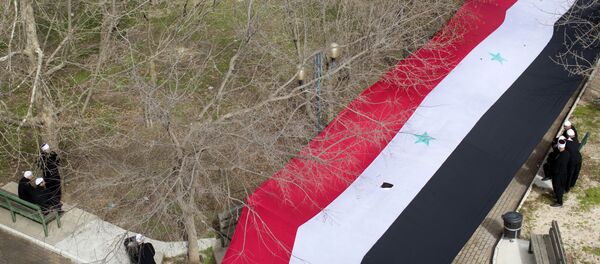In fact, most — if not all — of the destroyed warplanes previously provided air support to Daesh-fighting forces on the ground, allowing the Syrian Army to regain control over the ancient city of Palmyra, oil fields and other areas in Homs province, situated in central Syria.
Therefore, Daesh is the biggest winner from the US attacks against the Syrian military.
"We will stop racing to topple foreign regimes that we know nothing about, that we shouldn't be involved with. Instead, our focus must be on defeating terrorism and destroying ISIS [Daesh], and we will. We don't forget. We want to strengthen old friendships and seek out new friendships," Trump vowed in late 2016.
Although the structure of the Syrian opposition has changed since Trump took office, with the merging and rebranding of groups, the fundamental problem still persists; with the exception of the Kurdish-led Syrian Democratic Forces (SDF), most "moderate rebel" groups lack any sort of religious diversity, and possess some sort of Islamist agenda, with the vast majority aiming to establish Sharia law.
Even from a US perspective, allowing such groups to dislodge Assad's ruling government, and replace them, would not be a favorable outcome. Although these groups aren't actively looking to establish a worldwide caliphate, once they've established authority in Syria, they are likely to pursue more ambitious goals, potentially taking aim at the US and Europe, as such groups thrive off violence, war and aggressive expansion.
Furthermore, their extreme interpretation of Islam puts them at odds with western values, rendering them fundamentally incompatible.
The opposition is also heavily fragmented, and unpredictable, with regular infighting erupting between factions. This raises doubts over their ability to govern Syria, and maintain a degree of stability.
Based on the above, it can be concluded that most, if not all of the non-SDF rebel groups in Syria aren't suitable partners for Trump to work with.
The Syrian Democratic Forces do appear to be a potentially viable alternative; their successful relationship with the US throughout the war stands testament to this. However, using them to end the conflict in Syria does come with its own unique issues, and causes for concern.
Firstly, although the group has taken on more Arab fighters and even rebranded itself, they are still dominated by Kurdish members. This raises questions over their suitability to retake and govern the entirety of Syria, as there will inevitably be a conflict of interest, due to their ambitions for autonomy. Pertinently, the SDF hasn't directly indicated they would be willing or interested in doing so anyway.
In any case, attempting to capture all territory held by the Syrian Army and its allies will certainly involve further destruction to what's left of Syria's infrastructure, high civilian casualties and further internal and external displacement of Syria's population.
Although this may also be the case with combating Daesh, it would be on a much larger scale, as most of Syria's remaining and functioning infrastructure is situated in areas held by pro-government forces. Furthermore, in excess of 60% of the population live in areas governed by Assad, which includes many major, densely populated cities, such as the capital, Damascus, which is home to around six million Syrians.
Given the lack of a suitable alternative on the ground, Trump's attacks on the Syrian military's assets and facilities only diminishes the capabilities of one of Daesh' main opponents, and the only force which can end the conflict.
Therefore, such attacks prolong the existence of the caliphate in Syria.
Working with the Russian Federation and pro-government forces, or at least not regularly attacking them, is the only way to end the conflict with a satisfactory outcome, not only for Syria, but also for the stability of the wider region, and the west's security.
The views expressed in this article are solely those of the author and do not necessarily reflect the official position of Sputnik.




